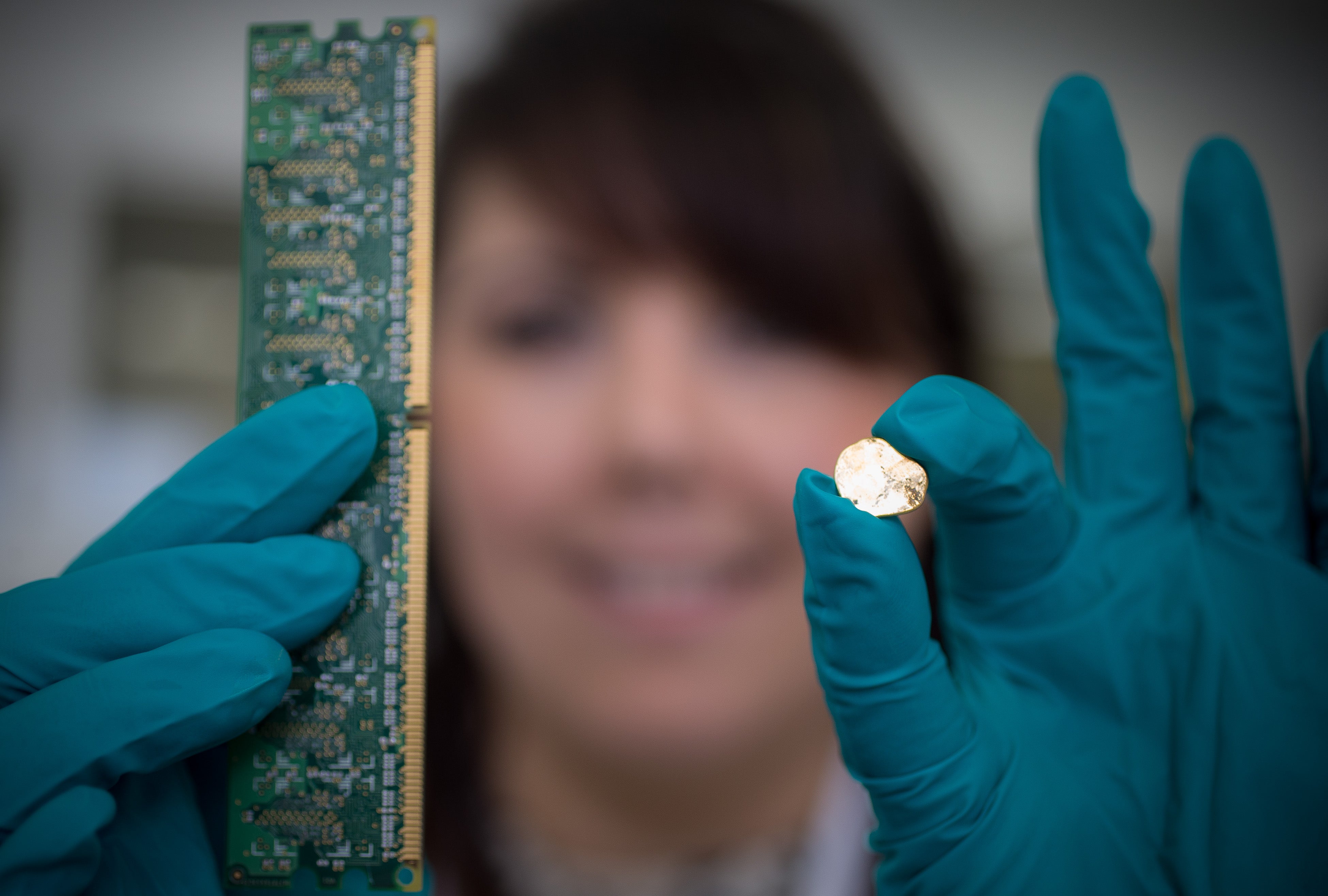New facility to extract gold from electronics to open in Wales
Work on the plant is due to start at the Royal Mint’s headquarters in Llantrisant, South Wales, this month.

Your support helps us to tell the story
From reproductive rights to climate change to Big Tech, The Independent is on the ground when the story is developing. Whether it's investigating the financials of Elon Musk's pro-Trump PAC or producing our latest documentary, 'The A Word', which shines a light on the American women fighting for reproductive rights, we know how important it is to parse out the facts from the messaging.
At such a critical moment in US history, we need reporters on the ground. Your donation allows us to keep sending journalists to speak to both sides of the story.
The Independent is trusted by Americans across the entire political spectrum. And unlike many other quality news outlets, we choose not to lock Americans out of our reporting and analysis with paywalls. We believe quality journalism should be available to everyone, paid for by those who can afford it.
Your support makes all the difference.The Royal Mint is soon to start work on its own in-house recycling facility to extract gold from electronic waste.
The plant will be based at the mint’s headquarters in Llantrisant, South Wales, with work on the site due to start this month.
It is due to be fully operational by early 2023, the Royal Mint said, and will have the capacity to recycle 90 tonnes of electronic waste each week.
Unlike existing electronics recycling, which involves waste being smelted at high temperatures, the new plant will rely on a chemical process developed by Canadian technology company Excir.
The waste is sorted to extract the circuit boards from laptops and mobile phones and then mixed with a patented formula to make a gold liquid in a few seconds.
The solution is processed to extract the solid gold, and the process can recover around 99% of gold in electronic waste.
The Royal Mint said the new facility will provide a new and reliable source of gold which will be fed straight back into the business.
Electronic waste is a growing problem, with an estimated 50 million tonnes produced globally each year.
Less than 20% is thought to be recycled, and the overall volume of electronic waste is expected to hit 74 million tonnes by 2030 if no action is taken.
Sean Millard, chief growth officer at the Royal Mint, said: “This approach is revolutionary and offers huge potential to reuse our planet’s precious resources, reduce the environmental footprint of electronic waste and create new jobs.
“We estimate that 99% of the UK’s circuit boards are currently shipped overseas to be processed at high temperatures in smelters.
“As the volume of electronic waste increases each year, this problem is only set to become bigger.”
Anne Jessopp, chief executive of the Royal Mint, said: “Our investment in a new plant will see the Royal Mint become a leader in sustainably sourced precious metals and provide the UK with a much-needed domestic solution to the growing problem of electronic waste.”